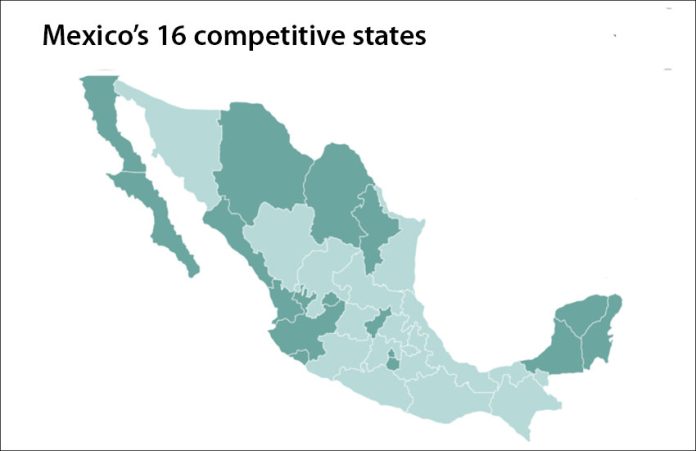The 2020 index, developed by the Mexican Institute for Competitiveness, or IMCO, evaluates 10 factors in determining a state’s competitiveness, such as the trustworthiness and objectivity of its legal system, environmental policies, economic stability, the efficiency of the state’s workforce and whether policies have fostered an inclusive, educated and healthy community.
This year, states were awarded gold, silver and bronze medals based on their rankings.
A total of 10 gold medals were awarded to Mexico City, Querétaro, Chihuahua, Colima and Yucatán.
Among the gold medallists, Mexico City, which led the way with five medals in total, was recognized for having the largest number of clean energy companies in the country, and also placed first in education, health and inclusivity of women in the workforce.
Querétaro followed with three medals, all gold.
Yucatán stood out for public safety with the lowest homicide rate and the highest percentage of the population that feel safe in their homes.
However, half the states in Mexico did not place at all. The 16 states that earned zero medals were Chiapas, Durango, Guanajuato, Guerrero, Hidalgo, state of México, Michoacán, Oaxaca, Puebla, San Luis Potosí, Sonora, Tabasco, Tamaulipas, Tlaxcala, Veracruz and Zacatecas.
Meanwhile, Mexico fell three places in terms of international competitiveness this year, dropping to No. 53 on the Switzerland-based Institute for Management Development’s World Competitiveness Rankings. The drop was attributed mainly to fiscal policy and inadequate infrastructure.
Singapore remained in the No. 1 position for the second consecutive year, followed by Denmark and Switzerland.
